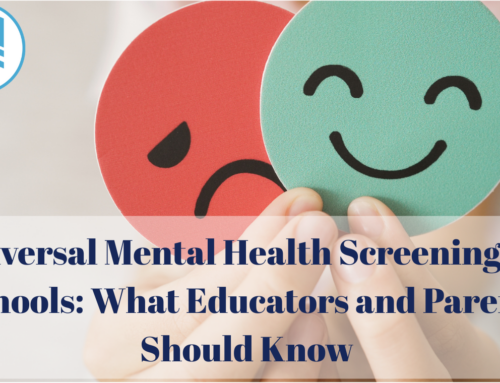
Is teaching wearing you out? Learn how to take better care of yourself as a teacher.
All teachers know how stressful the classroom can be. What’s really difficult is knowing what to do about it. It’s 2023, and you’re probably wondering how you can start taking better care of yourself.
With all the work and stress that teaching brings, especially in today’s world, it’s no wonder you’re a little tired. Relax. If you’re one of those worn-out teachers fighting to keep your head above water, we have a few tips for you.
Help! Why is Teaching so Exhausting?
“Teacher burnout.” You’ve heard the phrase. Maybe you’ve used it to describe your own mental state. If so, you know that teacher burnout is no joke! It really happens… quite often actually. Gallup News did a poll last year which revealed that “More than four in ten K-12 workers in the U.S. (44%) say they ‘always’ or ‘very often’ feel burned out at work, outpacing all other industries nationally.”
The first step to fixing a problem is admitting that there is a problem. Stop pretending like everything is going well if it isn’t.
Almost everyone experiences work-related stress at some point, and this can sometimes lead to burnout. “Burnout,” Very Well Mind says, “is a reaction to prolonged or chronic job stress,” and “if you feel exhausted, start to hate your job, and begin to feel less capable at work, you are showing signs of burnout.”
So, with this information in hand (i.e. burnout is real, and teachers are the most susceptible) we can ask the big question: Why is teaching so exhausting?
Well, the classroom environment is probably one problem. Many teachers feel they do not have time to take the breaks they need. They are in charge of so many different things: lesson planning, child care, discipline… not to mention the biggest responsibility of all — educating their group of students. And on top of these everyday demands, schools today are “maxed out”: many teachers are handling multiple classrooms, trying to teach larger and larger groups of kids, doing piles of paperwork, and more. This all means you, as the teacher, are constantly pouring out yourself, your knowledge, and your resources. Every single weekday.
The National Education Association points out that most exhaustion and burnout happens when “[A]n educator has exhausted the personal and professional resources necessary to do the job.”
Are you making sure you fill up what you pour out? Are you taking care of yourself before and after work?
Ways Teachers Can Take Better Care of Themselves This Year
Good habits — at home and at work — are essential to managing stress and curing burnout.
Changing our lifestyles, habits, and behaviors can be so difficult. However, it’s so worth it! Not only will it help us in the here and now to cultivate rest, productivity, and connection with others, but it can improve our lives long-term as well. One Harvard study found that simply exercising for 3.5 hours a week, eating well, maintaining a healthy body weight, not smoking, and keeping alcohol to a minimum can add up to 10 years to a person’s life-span!
What will ensure we’re following these simple steps to a healthier and longer life? Good mental health and good habits. That’s why it’s so important to make sure you’re not being worn down by your work and forgetting to take care of yourself.
So, with that said, here are several ways teachers like you can take better care of themselves this year!
Spend Time With Friends and Family
Spending time with others is probably the most important thing on this list.
We know. You spent all day with people: dealing with them, teaching them, laughing with them…maybe you just want some alone time.
Alone time is very beneficial and even necessary. However, alone time will only get you so far. Your work environment is saturated with people, but, although you probably have wonderful connections with your students, that can’t replace the strong and loving connections you have with your kids, spouse, parents, and friends.
After a long day or week you probably feel like curling up on the couch with your cat and watching Netflix. Ask yourself: is there someone I can include in my evening or my weekend?
Your tribe is your support team. They love you and being with them will cheer you up, help you see things from a different perspective, and hopefully get you out of the house. Piedmont.org says that spending time with friends and family helps you cope with stress, which in turn helps with your psychological well-being, improves cognitive function, and is even good for cardiovascular health.
Don’t discount the power of connection with your loved ones!
Improve Your Sleep
“It is estimated that sleep-related problems affect 50 to 70 million Americans,” The American Sleep Apnea Association says.
Sleep loss is one of the biggest problems in the U.S., and it’s probably because people don’t understand the negative effects of it. Again, the Sleep Apnea Association says “Sleepiness affects vigilance, reaction times, learning abilities, alertness, mood, hand-eye coordination, and the accuracy of short-term memory.” As a teacher, you’re drawing on all of these faculties every day.
So are you getting enough sleep? It’s recommended that even adults get 7 hours of sleep a night, wake up at the same time every morning, and go to sleep at the same time every night.
There are many things you can do to get better sleep (such as taking a walk early in the morning), but the most simple way to start is to get to bed at an early hour (probably 9 or 10pm, depending on when you get up). Turn off your phone, or leave it in another room. Read until you get sleepy, then switch off the lights and doze away. Try it! Your productivity and mood will improve right away.
Create an Effective Morning Routine
Next, work on your morning routine. If you’ve fallen into the habit of waking up at the last minute and immediately checking your phone, it’s time for a change!
Wake up at the same time every morning, even on weekends. Start keeping a water bottle next to your bed, and start drinking right away when the alarm rings. Get up, get dressed, and make your bed. If you have a skin or makeup routine, it might help to get that done right away, or maybe you like to wait until after your morning coffee.
Spend quiet time eating breakfast and reading a book, doing a stretch routine, or having coffee. Whatever your favorite relaxing hobby is!
And don’t forget, starting with a healthy night routine, getting enough sleep, and keeping your phone out of reach the night before will go a long way in helping create a solid morning routine. So much of what makes a morning routine go smoothly actually starts with the night before!
Keep Moving
Teachers, it is really important that you keep moving! Most of your time is spent at a desk or standing. Both can be a big strain on your back — plus that doesn’t give you much leg or arm movement.
Begin with a strategy for exercising on your days off, or, if you’re feeling adventurous, start exercising before breakfast. You only need to start with three days a week.
Then, of course, start thinking of how you can keep moving at work. Does that mean taking a five minute walk in the parking lot at break? Or doing stretches at your desk? Getting your class to do some movements with you to revitalize energy, theirs and yours? If you do a little brainstorming, you’re sure to come up with something.
Eat Better
Now’s the time to make those eating ideals into real habits. Eating better can be overwhelming, especially for teachers. Many teachers don’t get breaks for lunches or snacks, so it’s often a matter of grabbing what you can.
And so many of us grab junk food when we’re in a hurry, right? That’s not a good habit to get caught up in! Besides trying to eat better in general, begin planning meals and snacks to take to school that are healthy. Pack more raw foods such as vegetables, nuts, fruit, and meat you prepared beforehand. Then when you’re feeling hungry, you’ll be grabbing healthy foods that actually make you feel full and satisfied.
Break Up With Social Media
Social media can be a wonderful outlet: it can generate creativity and give us support groups we never would have had otherwise. This is especially true for teachers.
But there’s a fine line. Social media can be pretty destructive, as we all know. For one thing, it keeps us glued to our screens. For another, it draws us into loops of comparison and even depression. Bad mental health in America is strongly linked to social media.
Maybe you’ve come to a point in your life where breaking up with social media sounds like a good (but scary) idea. If so, then do it! Try it for a day, a week, or a month. It’s okay if you get back on after your little “social media fast,” but consider making this a regular habit. Block out days or weeks that are social media free. And who knows, maybe you’ll decide to break up for good.
Stop Taking on Too Much & Start Taking Breaks
It can be hard for teachers to say no! There’s so many needs, so many opportunities to help out and shoulder the responsibility. But it can be too much.
Remember that life is much more than work or being the most helpful teacher in school. You can say no to a new responsibility, even if the only reason is “because I’m tired.”
Start taking breaks. Your class will survive a day or even a week with a substitute. It’s time to take those vacation days you’ve been saving up for some future day. And when you can’t take days off, start looking for moments in the school day when you can slip off and do some deep breathing or take a short walk.
Get Ready For Your Best Year Yet
Teachers, this is going to be your best year. You can make it that way, because you’re committed to taking care of yourself and not working so hard that you get burnt out.
Start small. Pick one or two things on the list above to start with. Maybe you’ll just begin taking celery sticks and peanut butter to work instead of buying those Doritos from the vending machine! Habit formation doesn’t happen when we take on too much and overwhelm ourselves even more. Work your way up to the big goals slowly, and you’ll be well on your way to taking better care of yourself this year.




